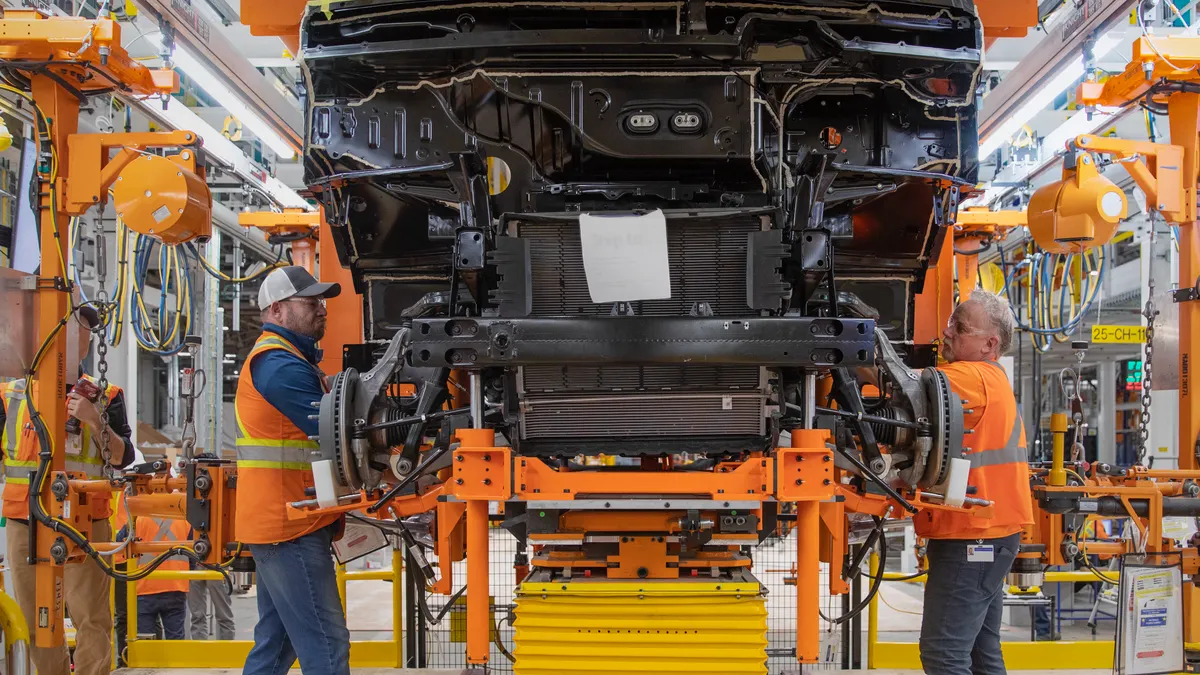Editor's note: This story is part of the WardsAuto digital archive, which may include content that was first published in print, or in different web layouts.
The resurgence of the U.S. auto industry, from the collapse in 2008 to the strong sales of 2012, is heartwarming. Customers are flocking to showrooms, the industry is hiring back tens of thousands of employees, the automotive vertical is profitable and everyone is smiling. But if the industry wants to let the good times roll, it’s going to have to keep a careful eye on critical bottlenecks in the supply chain.
North American suppliers removed a significant amount of capacity in the last decade but especially during the Great Recession. Now, with NAFTA production soaring, they are on the verge of running into critical shortages in production capacity, tooling and people.
The shortage is particularly acute in plastics, rubber, castings, powertrain components, and specialized tooling.
These are the findings of the Autoline Supplier Symposium at the recent North American International Auto Show, where supplier executives, industry experts and purchasing executives discussed the capacity crunch they face.
Amazingly, the NAFTA region produced about the same number of vehicles in 2012 as it did in 2007 but with 100,000 fewer people. So far, suppliers have met production with overtime and added shifts. However, they only can push people and equipment so far, and the strain is increasing.
Production may rise by 1 million units this year just to keep pace with customer demand. Auto makers are ramping up their product cadence to roughly 54 new model introductions a year, compared with the previous average of about 38 a year. And fuel-economy regulations require constant introduction of new technology.
Meanwhile, suppliers complain they can’t hire the technical talent they need and have a hard time retaining people because competitors are raiding their talent pool. Worse, tooling lead times are stretching out longer and longer as a shrunken tool and die industry strains to meet demand. If you want a set of stamping dies to make a fender, you have to wait a year!
There is a hurdle on the financial front as well. Wall Street worries the U.S. auto industry will go back to its bad habits of overproducing and discounting. As a result, supplier shares trade at low multiples, making it harder for them to raise capital on the stock market. And their boards of directors frequently ask why they should spend that precious capital as they are quite profitable at current capacity.
To avoid slipping back into bad practices, suppliers now are adding capacity only by the part number, and they are cagey about future plans. Auto makers always forecast their newest models will sell well. But that’s not what always happens. Suppliers now evaluate the likely volume any one car segment can support, not any one car, and are planning their capacity accordingly.
There are some promising efforts to ease the pressure. One is “matchmaker meetings”, where potentially complementary suppliers can form new joint ventures that address specific shortfalls. The Michigan Economic Development Corp. (MEDC) hosts a website called Pure Michigan Business Connect that brings different companies in the state together to do business. So far, it has established a data base of 1,000 companies. Check it out at www.PureMichiganB2B.com.
The MEDC found that for every $200,000 in new business it encourages Michigan companies to do with each other, it creates one new job. It set a goal last year of generating $1 billion in new business, or 5,000 new jobs, but claims it now has a commitment of $8 billion, and points out it is just getting going.
Ford, Chrysler, JCI, and Schuler are some of the companies participating in the matchmaking process and say they are encouraged by the results.
Auto makers and suppliers alike are praying the U.S. continues on a steady, organic growth rate. So far, they’ve been able to ride the resurgence without major problems. But the industry is only a hiccup away from failing to keep up with demand.
John McElroy is editorial director of Blue Sky Productions and producer of “Autoline” for WTVS-Channel 56, Detroit, and “Autoline Daily,” the online video newscast.



















